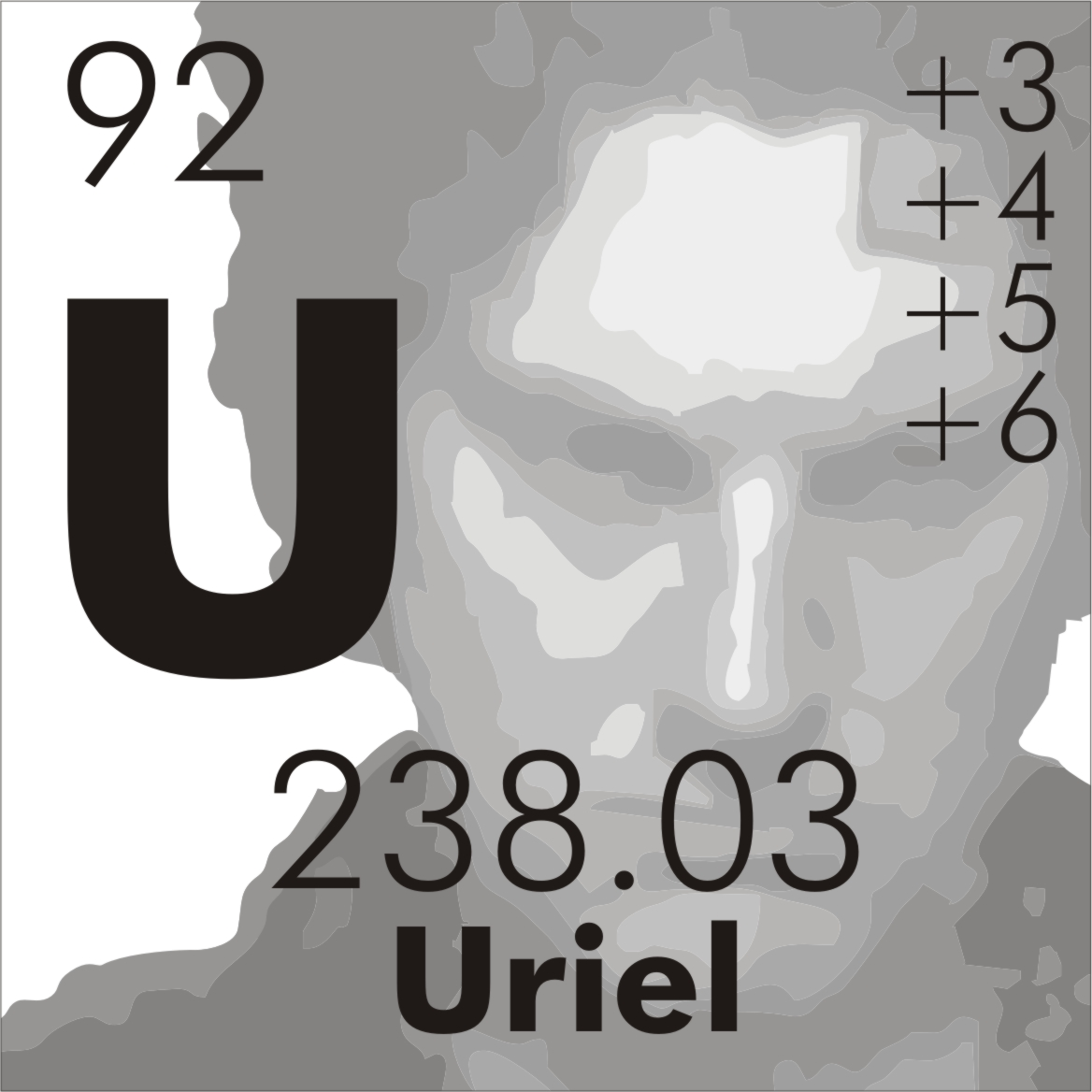This is rather as if you imagine a puddle waking up one morning and thinking, ‘This is an interesting world I find myself in — an interesting hole I find myself in — fits me rather neatly, doesn’t it? In fact it fits me staggeringly well, must have been made to have me in it!’ This is such a powerful idea that as the sun rises in the sky and the air heats up and as, gradually, the puddle gets smaller and smaller, frantically hanging on to the notion that everything’s going to be alright, because this world was meant to have him in it, was built to have him in it; so the moment he disappears catches him rather by surprise. I think this may be something we need to be on the watch out for.
Douglas Adams, The Salmon of Doubt
There are more than 10,000 stars for every grain of sand on earth… If only 0.00000001% had a habitable planet, there are still millions of habitable planets in the universe. Is earth rare? Yes, but to say that proves the god of the bible is a real entity, is more than a ridiculous statement.
Furthermore, once I learned about the miller-urey experiment where it was shown that amino acids (building blocks of proteins and DNA/RNA) can be spontaneously created by simple gasses like methane, ammonia, and Hydrogen, it was all over for the thought of an intelligent creator.
You might enjoy a collection of essays of the lectures of Carl Sagan called the Varieties of Scientific Experiences. He had one on the organic universe. Where he talked about how absurdly common organic compounds are in our solar system, had a little mention of the first time cyanide was discovered on a comet. I am not sure if this is currently accepted or just at the time of writing but he also argued that those compounds formed when the solar system was still just a rotating disc of gas and dust.
Life “choose” to use what was common, and it is common because the stuff life has access to was stuff that was less likely to decay. It is survivorship bias.
Agreed on the thrust of your comment but i also saw that a few changes to the nature of earth and everything changes. For example, a bit bigger and we could not use a rocket to leave orbit as it would exceed the power ratios. A bit closer to the sun etc.
And the fact that it took 4bn years.
The raw maths produces alot of planets but they still have to be Goldilocks
We couldn’t use a chemical rocket correct. A bit bigger meaning about 6x the size of earth by mass if I remember that article correctly. Nuclear rockets would be all we have, you know that tech we looked into and didn’t pursue over 60 years ago. Unless of course we really only accepted rockets instead of using plain ballistics and orbital machines. I don’t know why you think it matters to some god that we go into space, nothing in the holy writings of humanity indicates that. Also if that was the goal I doubt NASA would have been stuck in LEO for 52 years and counting.
You are right you need a lot of things to go right to get us. Here is another fun fact. Take a deck of cards and shuffle them. The odds of that combination is 1 out of 52!, which is about 1.24e-66%. Put another way, imagine a 1% of something happening, now imagine some event is a 10 million billion billion billion billion billion billion as likely as that happening, that number is the odds of that particular deck existing. And yet a particular arrangement happens thousands of times a minute.
Just because any given outcome is unlikely doesn’t mean no outcome is possible.
Sounds like confirmation bias. Agnosticism is probably the most reasonable take you can live by. If there’s a universe so unimaginably big, how is it impossible to think there could be an entity so unimaginably beyond our existence. As we are to bacteria, say.
I think the vastness of the universe makes it even less likely for a creator being, due to the pointlessness of it all. If there was a god they could make our galaxy work without a universe to support it, and we wouldve never been the wiser.
It is more likely that natural forces due to physics and chemistry created the universe, the galaxys, our planet, and us. There is most likely some constant expansion and contraction that repeats, which continues the cycle of death and rebirth over and over again forever. There is no beginning and there is no end, there is no purpose except for the purpose you make for yourself and your loved ones.
It’s arrogance to think you’re even on the right path of anything imo. Personally why agnosticism is the only logical outcome. There’s things we can observe and understand and then things so far beyond us and possibly beyond our perception that there is no other word than arrogant to describe anyone who claims to say they’re correct over another. I speak on both chronically online atheists and chronically in pulpit theists. It’s fun to theorize and discuss, but when it comes to putting someone else down because their view of what’s possible is different from yours, that’s cringe.
Sure it seems probable to believe there isn’t some creator, but there’s literally no possible way to know. If some entity or entities capable of creating the universe existed, I’d assume they’d also have the power to just not be noticed. There’s just no way of knowing, which makes our purpose as you said, individual to those around us and ourselves.
We can know that certain gods are false simply because they are logically incoherent, but sure, the non falsifiable concepts are simply that, non falsifiable. I’m atheist because I don’t believe in a god, not necessarily because I believe any specific god doesn’t exist.
I’m with you that putting others down for their beliefs is cringy, but we shouldn’t pretend that having a belief in a god without evidence to back it up is reasonable. There absolutely is a way to know a creator exists, and if they’re powerful enough to create the universe, they know exactly how to demonstrate that.
I don’t think it needs to be reasonable if it gives them comfort in life and i don’t pretend it is. I just think they’re allowed the right to have that thought and defend it if they choose.
But I don’t think it’s guaranteed to think a creator would want to be known. Maybe the concept of god had motive to stay unnoticed. We’d never know. The mystery is the fun, not the moral superioriterino.
I agree in a way. We really can’t rule out a being superior to us so far ahead that god is what we should call it.
Now when someone blows up a building with a backpack bomb or criminalizes birth control do you think that their definition of God is that one?
Arguing these hypotheticals is fun but it is academic.
“If gravity was just 0.01% stronger, the Earth would fall into the sun!”
Yeah, or maybe the planets in this system would have very slightly different orbital speeds, and things would be fine. The tuning always needs to be ultra fine when they’re arguing a strawman.
If you did a census of the regular matter and energy the universe 99.99% of it would report being in solar plasma or a black hole. We are very fortunate to live in an atypical solar system, ours is 99.98%.
Fine tuned for stars and black holes if anything. Which is still not true because as Isaac Asimov noted if the strong nuclear force was a bit stronger stars could be much more abundant.
I haven’t done any actual math in this respect, but I suspect this meme is still missing quite a lot of 9s after the decimal point.
The weird thing is we imagine universal constants as knobs we can twiddle to get results. No, the universe runs on natural forces. We can certainly probe why they are as strong as they are (and no stronger) but we can’t presumed the can be different.
The constants themselves are parts of mathematical models that accurately (but not perfectly) describe the mechanics of the universe. They’re not prescriptive. If we change the constants, they’d just be wrong.
Or to quote a Texas cosmology professor (who I can’t locate anymore) These numbers ain’t for fiddlin’
PS: If God does have a set of knobs for setting the fundamental constants, that strongly implies a simulated universe which in turn implies properties of God (and of us) that are distasteful to most major ministries. (A lot of theists are plussed by the notion as well.)
I don’t think either of those are very good arguments. The first guy’s argument doesn’t really mean anything, but the second guy just makes it sound more reasonable. If the vast majority of the universe is inhospitable, doesn’t that make it more miraculous and unexplainable that earth is?
The observable universe is insanely huge, and we don’t know how much bigger it is beyond what we can interact with, indeed it might even be infinite. Even if the chance is literally astronomically small, odds are it’ll happen somewhere, and if the universe turns out to be actually infinite, then as long as it’s physically possible at all, it will happen. Combine this with the anthropic principle: wherever intelligent life does arise, no matter how sparse or rare it is, that life will be able to ask “why here, when it seems so unlikely?”
Yeah I don’t disagree with that although assuming that the universe isn’t infinite, my point still stands. I don’t think something being extremely rare automatically proves outside intervention somehow, I’m saying that pointing out just how rare it is, isn’t a good counter argument to that.
If the vast majority of the universe is inhospitable, doesn’t that make it more miraculous and unexplainable that earth is?
No, because the Earth being habitable doesn’t violate any laws of physics. It’s just rare.
I would describe something that rare as miraculous. I’m not saying it’s literally impossible without some outside force influencing it, it just doesn’t help your argument to point out how unlikely life is.
I very clearly said that I thought the original point by the creationist didn’t make sense, so I’m not sure why you immediately assumed I’m making that argument.
You can call it whatever you want but it’s just random chance.
We just so happened to be on a planet that was the right distance from the sun, that is made up of exactly the elements necessary, and went through all the exact environmental changes to support our version of life.
In an infinite universe with a set amount of elements that can only mix in a set amount of ways you are guaranteed to eventually get every single possible combination.
Life is just an inevitability. Like repeating numbers in RNG. It’s just luck. Blind happenstance.
deleted by creator
I would describe something that rare as miraculous.
Then you have a different definition of “miracle” than most.
it just doesn’t help your argument to point out how unlikely life is.
And what exactly do you think my argument is?
I very clearly said that I thought the original point by the creationist didn’t make sense, so I’m not sure why you immediately assumed I’m making that argument.
I’m not sure why you assume that I assume that. I said no such thing.







